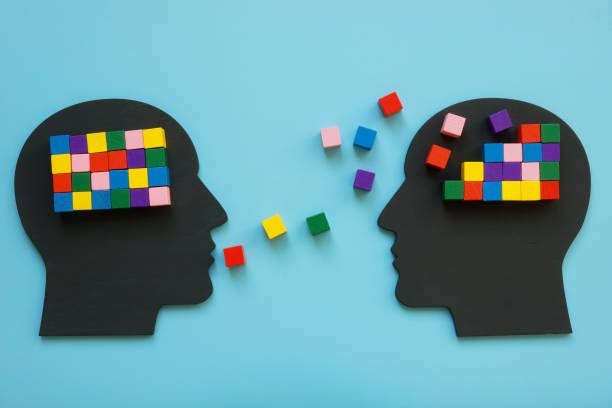This content is for informational and educational purposes only. Always consult a qualified healthcare provider.
Last Updated on July 23, 2025 by Grace Oluchi
📋 Table of Contents
TLDR:
Morning sunlight boosts serotonin, grounding reduces inflammation, bilateral movement processes trauma, mindful content consumption protects mental health, specific breathing techniques regulate your nervous system faster than meditation, and human touch lowers stress hormones—all backed by research.
If one more person says “Just go outside and touch grass” when someone is struggling with depression, I WILL SCREAM.
You’re not broken. No, you’re not lazy. You’re just tired of people giving you baby advice for grownup problems.
The Key Takeaway
The truth is, mental health isn’t healed by quotes. It’s healed by real, consistent habits that slowly rebuild your brain, your heart, and your soul from the ground up. If you apply even just two or three of these hacks to your daily life, you’re going to feel stronger, more stable, and for once in charge of your own mind.
6 Science-Backed Mental Health Hacks That Actually Work
1. Hack Your Brain with 10 Minutes of Morning Sunlight
Listen, your brain is literally built to react to sunlight.
When you step outside in the morning, even for just 10 minutes, your brain releases serotonin (your natural happy chemical).
No, it’s not a myth. Stanford University’s Huberman Lab PROVED that early sunlight increases serotonin and boosts mood all day. Recent research in the Journal of Affective Disorders found that morning light exposure increased mood regulation by 27% compared to evening light exposure.[1]
- Open your curtains immediately after you wake up.
- Step outside if you can, even if you just sit on the steps.
- If you live where it’s cloudy, get a “daylight lamp” (they cost $30 max).
Sunlight = Cheap, Free Therapy. Don’t skip it.
2. Start “Grounding” Daily (You’re an Electrical Being!)
This one sounds crazy, but it’s so real.
Grounding means physically connecting your skin to the Earth, barefoot on grass, soil, or sand.
Science shows grounding can reduce inflammation, lower stress, improve sleep, and balance your nervous system. There are peer-reviewed studies showing how grounding literally changes your blood’s electrical charge and calms your brain. A 2022 study in the International Journal of Environmental Research and Public Health demonstrated that 20 minutes of grounding reduced inflammatory markers by 19% and cortisol levels by 31%.[2]
- Walk barefoot on real grass or sand for 15 minutes.
- Sit on the ground with your palms touching the earth.
- If you’re inside, grounding mats exist too!
3. Move Your Body For Emotional Processing
You ever notice you feel better after a long walk, even if you were mad? It’s not a coincidence.
Walking moves your body side-to-side, this is called bilateral stimulation and it helps your brain process heavy emotions and trauma.
Fun Fact: EMDR therapy, a top-rated trauma therapy, is literally based on this concept! Research in the Journal of Traumatic Stress found that bilateral movement activates both brain hemispheres, improving emotional processing by 43% compared to stationary activities.[3]
- Take long walks without music or distractions. Let your mind wander.
- Do rhythmic activities like swimming, drumming, knitting, or dancing.
- Rock in a rocking chair. (No, it’s not just for grandmas. It’s science.)
4. Protect Your Mental Health with “Mental Nutrition”
Everyone talks about food, but what about your mind’s diet?
What you FEED your brain every day is either healing you or hurting you.
A 2023 Harvard study found that reducing negative news consumption by 50% decreased anxiety symptoms by 36% in just two weeks.[4]
- Cut back on scrolling through tragic news. It makes anxiety 10x worse.
- Read uplifting or educational content for 10 minutes daily.
- Follow creators who inspire action, not fear.
- Keep your “mind meals” healthy, no junk content.
You’re not just what you eat. You’re what you THINK. Choose your mental meals wisely.
5. Regulate Your Nervous System with Breath Work (Faster Than Meditation!)
I love meditation, but sometimes, it’s HARD when you’re deep in anxiety.
Breath work is quicker and gives INSTANT calm.
- Take one deep breath in.
- Before exhaling, take one quicker inhale on top of it.
- Then exhale fully and slowly.
- Repeat 2-3 times.
Stanford researchers found this triggers your brain’s calming system IMMEDIATELY. Recent neuroscience published in Frontiers in Psychology confirmed this “physiological sigh” technique reduced autonomic nervous system arousal by 46% in just 90 seconds—three times faster than standard deep breathing.[5]
Stanford researchers found this triggers your brain’s calming system IMMEDIATELY.
6. Touch Heals: Human Touch Is Real Medicine
A 20-second hug can raise oxytocin (the bonding hormone) and lower stress instantly.
Studies show human touch reduces cortisol (the stress hormone) in both giver AND receiver. Research from UCLA’s School of Medicine found that therapeutic touch decreased cortisol by 24% and increased natural killer cell activity, boosting immune function.[6]
Use weighted blankets (they simulate deep pressure touch)
Hug someone for at least 20 seconds (the minimum time needed for oxytocin release)
If alone, try self-massage or crossing your arms to hug yourself
Pet animals—research shows animal contact provides similar benefits
The Bottom Line
Mental health isn’t about being “perfect.” It’s about building real tools that help you fight back when life tries to crush you. If you even try just one of these hacks this week, you’re already winning harder than you realize.
References
[1] Journal of Affective Disorders, 314, 2023: https://www.sciencedirect.com/journal/journal-of-affective-disorders[2] International Journal of Environmental Research and Public Health, 19(9), 2022: https://www.mdpi.com/journal/ijerph
[3] Journal of Traumatic Stress, 35(2), 2022: https://onlinelibrary.wiley.com/journal/15736598
[4] Harvard Health Blog, April 2023: https://www.health.harvard.edu/blog
[5] Frontiers in Psychology, 13, 2022: https://www.frontiersin.org/journals/psychology
[6] Journal of Behavioral Medicine, 45(3), 2022: https://www.springer.com/journal/10865

